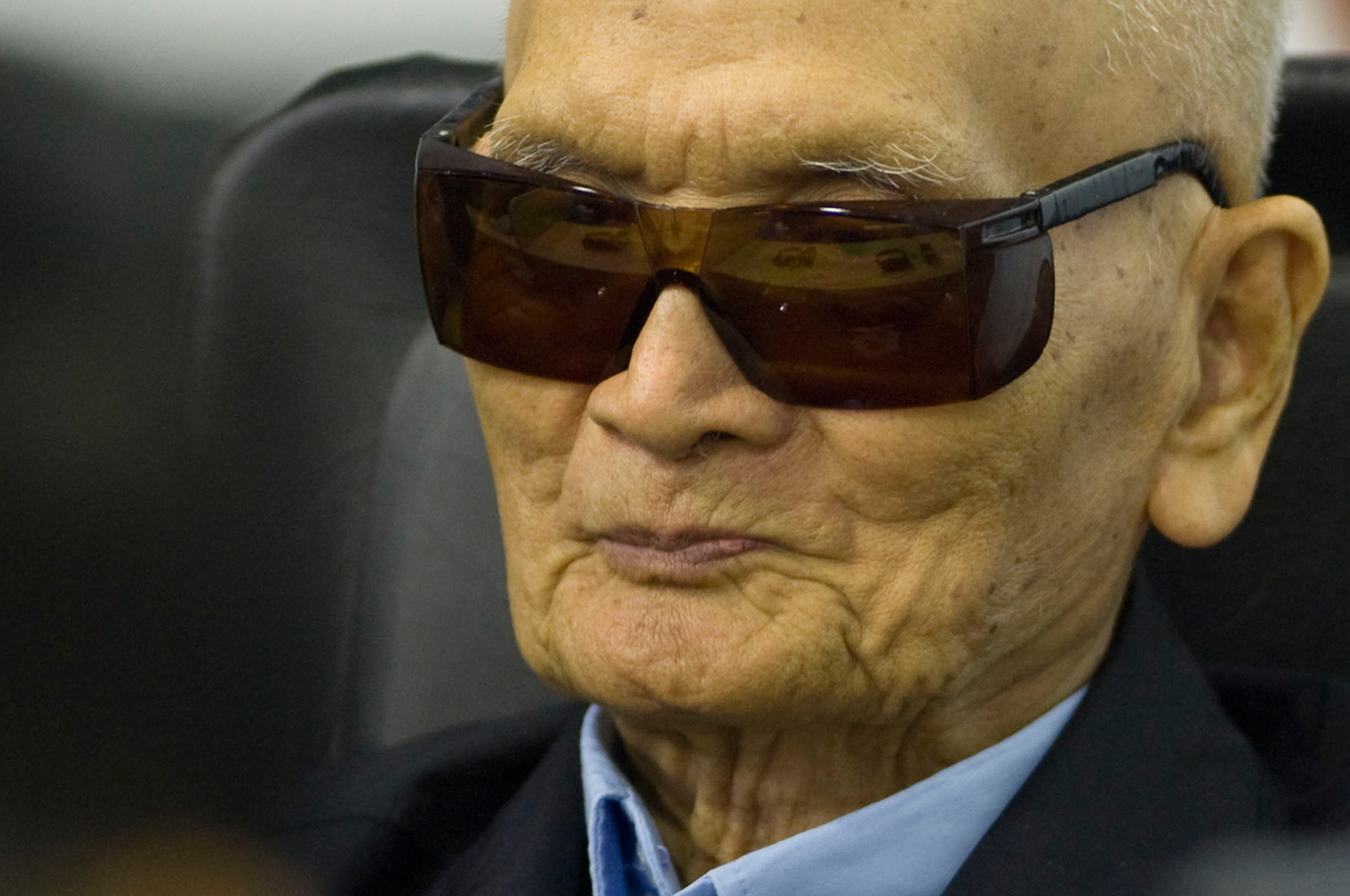Khmer Rouge leaders found guilty: Almost four decades after their murderous reign Cambodia sentences heads of regime to life in prison
A UN-backed war crimes tribunal today announced the historic verdicts

Almost four decades after their regime seized control of Cambodia and led it on a dark, murderous course, two elderly leaders of the Khmer Rouge have been found guilty of war crimes and sentenced to life in jail.
Khieu Samphan, the regime’s 83-year-old former head of state, and 88-year-old Nuon Chea, considered its main ideologue, were asked by the court to stand to their feet as the verdicts were delivered. But Nuon Chea claimed he was too frail and was permitted to remain in his wheelchair as the proceedings went ahead.
The main judge at the Extraordinary Chambers in the Courts of Cambodia, Nil Nonn, read a list of crimes for which the two men had been found guilty, including “extermination encompassing murder, political persecution, and other inhumane acts comprising forced transfer, enforced disappearances and attacks against human dignity”.
The two men had insisted they were not guilty and their lawyers said they would appeal against the judgement. “It is unjust for my client. He did not know or commit many of these crimes,” Son Arun, a lawyer for Nuon Chea, told journalists, according to the BBC.
Four years ago, Kaing Guek Eav, also known as Comrade Duch and who oversaw the Tuol Sleng jail torture and interrogation camp, was found guilty of genocide and crimes against humanity. A court has ordered that he spend the rest of his life in jail.
Yet the tribunal process, which has cost upwards of £140m, has been persistently dogged by controversy and difficulty. Cambodia’s leader, Prime Minister Hun Sen, himself a former Khmer Rouge leader, has always objected to the process and has acted to ensure only a limited number of suspects were ever considered for trial.
In addition to Comrade Duch, four other elderly former Khmer Rouge leaders were charged. Former Foreign Minister Ieng Sary died in 2013, while his wife, Social Affairs Minister Ieng Thirith, was deemed unfit to stand trial as a result of dementia in 2012. The group’s most senior leader, Pol Pot, died in 1998.
That left just Khieu Samphan and Nuon Chea. Khieu Samphan has acknowledged that mass killings took place. But testifying before the court in 2011, he claimed he was just a figurehead who had no real authority.
Nuon Chea, who is known as Brother No 2 for being Pol Pot’s deputy, had also denied responsibility, testifying in 2011 that Vietnamese forces were responsible for killing people and the not the Khmer Rouge.
The Associated Press reported that the two men now face a second trial due to start later this year where they will face charges of genocide. That trial is expected to take years to complete.
Reaction to the tribunals in Cambodia has been mixed. Those who lost relatives or else suffered themselves, have largely welcomed the verdicts. Yet Cambodia has a very young population – more than half is aged less than 25 – and many young people have little idea about the Khmer Rouge or that period in the country’s history.
Legal campaigners who have witnessed the trial welcomed today’s decision.
James Goldston of the Open Society Justice Initiative, which has monitored the tribunal since it was first established, said “Nearly forty years after some of the 20th century’s most appalling crimes were committed, the victims have seen the perpetrators brought to account before a court of law. They have been tried fairly, and found guilty.”
Subscribe to Independent Premium to bookmark this article
Want to bookmark your favourite articles and stories to read or reference later? Start your Independent Premium subscription today.

Join our commenting forum
Join thought-provoking conversations, follow other Independent readers and see their replies